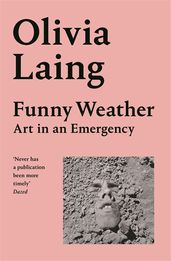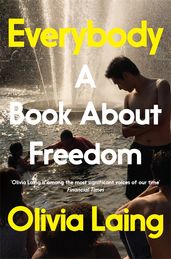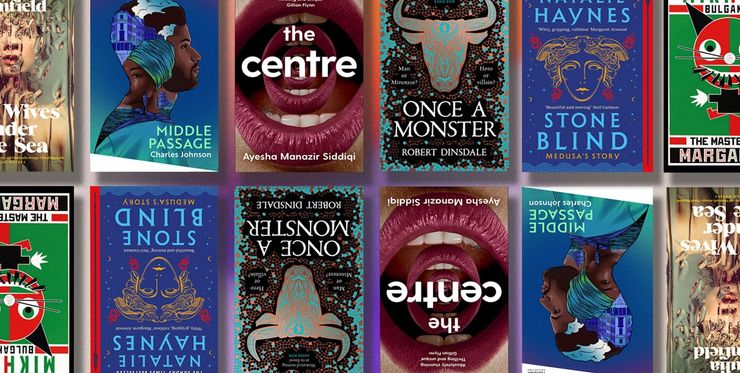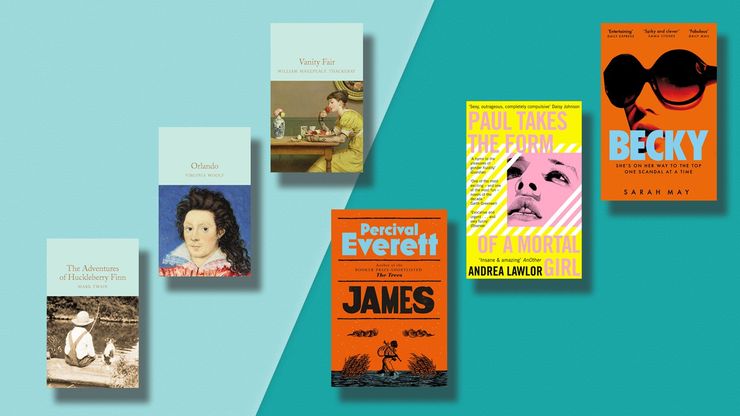Olivia Laing's books: a guide
Olivia Laing introduces her work, from the award-winning Crudo to her latest book, The Garden Against Time.

I never want to write the same book twice. Over the years I’ve written about loneliness and landscape, alcoholism, embodiment, art and freedom. I write about the complicated and sometimes frightening world in which we live, and I’ve found that to do so requires a supple new kind of form. My books refuse category. They shift between memoir and history, criticism, psychoanalysis, biography. They’re political. They often include travel writing – things happen, after all, in physical places. I also move freely between the personal and the objective. I often write about traumatic subjects, and it has felt important to me both to acknowledge my own connection to the subject, as well as to set myself aside and to voyage very deeply into other times and other lives.
My last three non-fiction books share a particularly close connection. The Lonely City is about the purgatory of loneliness, the frozen state of alienation and isolation epitomised by the twenty-first century city. Everybody charts the hell of embodiment, the horror of being trapped in a body that is subject to prejudice, violence, illness and death. And my new book, The Garden Against Time, investigates the fertile and sometimes dangerous dream of paradise of earth and the long struggle to make that paradise shared.
What is Olivia Laing's latest book?
Out now, The Garden Against Time is Olivia Laing’s latest book.
The Garden Against Time
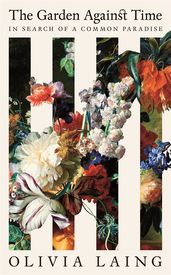
During the Covid-19 lockdowns, gardens – for those lucky enough to have them – became a kind of sanctuary. A paradise. This was certainly the case for Olivia Laing, who began in 2020 to restore the walled garden at her new house in Suffolk. But who does Eden exclude, and what does it cost? As she dug flower beds and stripped ivy from the walls, Laing examined the more sinister aspect of the desire for a paradise on earth, from the people dispossessed by the enclosures to indulgent pleasure gardens funded by the work of the enslaved. Yet gardens can also nurture utopian dreams and rebel Edens. Laing unearths wartime sanctuaries and queer enclaves, charting the thrilling possibilities of the garden as well as its sometimes shocking cost.
Olivia Laing's novel
Crudo
by Olivia Laing
Crudo is currently Olivia Laing’s only work of fiction – the first in a proposed quartet. Yet “fiction” doesn’t quite do it justice. This real-time novel follows Kathy, a writer who is getting married in the summer of 2017 and struggling to adjust to this lifelong commitment, against the chaotic backdrop of Trump, neo-Nazis, the Grenfell fire and climate change. Is it really worth learning to love when the end of the world feels nigh? Kathy is a post-modern mash-up of the late Kathy Acker, the experimental novelist, and Laing herself at a similar turning point in her own life. This playful experiment with form is combined with the subversive insight about the modern world that makes Olivia Laing’s writing feel so timely and original.
Olivia Laing's non-fiction books
Funny Weather
by Olivia Laing
Funny Weather: Art in an Emergency is a celebration of art and artists in difficult times. It brings together Olivia Laing’s critical writing on culture over the last decade, gathering essays, reviews, magazine columns and interviews. In the turbulent climate of the twenty-first century, Laing argues for art as a force of resistance and repair. She profiles the likes of Jean-Michel Basquiat and Georgia O’Keeffe, interviews Hilary Mantel and Ali Smith, writes love letters to David Bowie and Freddie Mercury, and explores loneliness and technology, women and alcohol, sex and the body. These essays reveal the pleasure and pain that comes with leading a creative life, and show how art and artists really can change the world in which we live.
‘We're so often told that art can't really change anything. But I think it can. It shapes our ethical landscapes; it opens us to the interior lives of others.’
— From 'Funny Weather' by Olivia Laing
Everybody
by Olivia Laing
What is a body? Why are some bodies subject to hatred and repression? And how can our bodies fight for liberation? These are the urgent questions explored by Olivia Laing’s Everybody. At the centre of this ambitious fusion of memoir, history, art and biography is Wilhelm Reich – a psychoanalyst with controversial ideas about bodily freedom, including the belief that people carry their emotional pain locked in their bodies. Drawing on her own experiences as well of those of figures as diverse as Malcolm X, Andrea Dworkin and Nina Simone, Laing explores how different bodies – queer bodies, female bodies and black bodies, among others – are subject to powerful external forces. She investigates this in a way that is both readable and revelatory, and ultimately celebrates the power of ordinary humans to fight for freedom.

